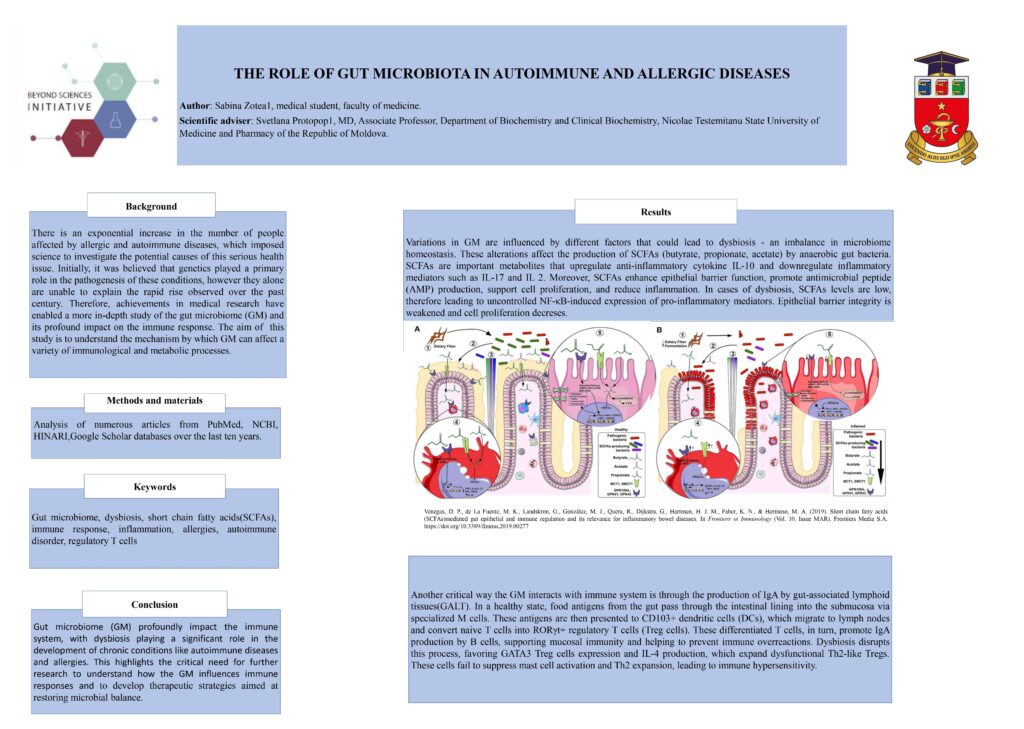Sabina Zotea
Moldova
THE ROLE OF GUT MICROBIOTA IN AUTOIMMUNE AND ALLERGIC DISEASES
Sabina Zotea1, Svetlana Protopop1
1.Department of Biochemistry and Clinical Biochemistry, Nicolae Testemitanu State University of Medicine and Pharmacy of the Republic of Moldova
Abstract
Background
There is an exponential increase in the number of people affected by allergic and autoimmune diseases, which imposed science to investigate the potential causes of this serious health issue. Initially, it was believed that genetics played a primary role in the pathogenesis of these conditions, however they alone are unable to explain the rapid rise observed over the past century. Therefore, achievements in medical research have enabled a more in-depth study of the gut microbiome (GM) and its profound impact on the immune response. The aim of this study is to understand the mechanism by which GM can affect a variety of immunological and metabolic processes.
Methods
Analysis of numerous articles from PubMed, NCBI, HINARI, Google Scholar databases over the last ten years.
Results
Variations in gut microbiota (GM) can cause dysbiosis, disrupting microbiome balance and reducing short-chain fatty acids (SCFAs) like butyrate, propionate, and acetate. SCFAs regulate anti-inflammatory cytokines (e.g., IL-10), suppress inflammatory mediators (e.g., IL-17, IL-2), enhance epithelial barrier function, promote cell proliferation, and reduce inflammation. In dysbiosis, low SCFA levels weaken the epithelial barrier, decrease cell proliferation, and lead to uncontrolled NF-?B-induced inflammation.
The GM also influences immunity through IgA production by gut-associated lymphoid tissue (GALT). Normally, food antigens cross the gut lining, activating CD103+ dendritic cells (DCs) to induce regulatory T cells (Tregs), which promote IgA production and mucosal immunity. Dysbiosis disrupts this process, favoring dysfunctional Th2-like Tregs, leading to immune hypersensitivity and inflammation.
Conclusions
Gut microbiome (GM) profoundly impact the immune system, with dysbiosis playing a significant role in the development of chronic conditions like autoimmune diseases and allergies. This highlights the critical need for further research to understand how the GM influences immune responses and to develop therapeutic strategies aimed at restoring microbial balance.


Leave A Comment